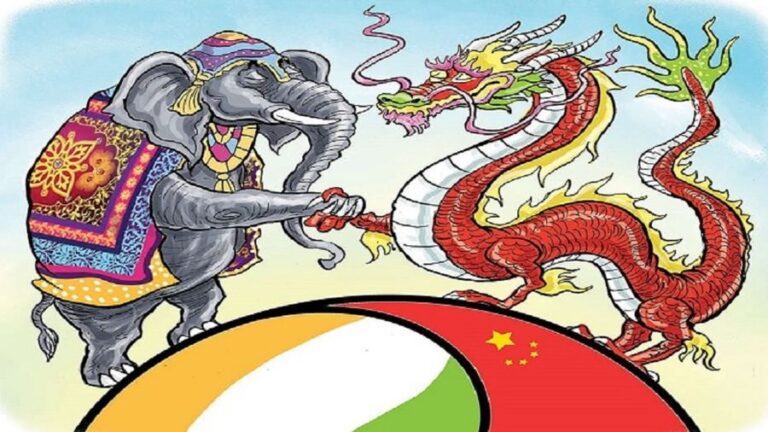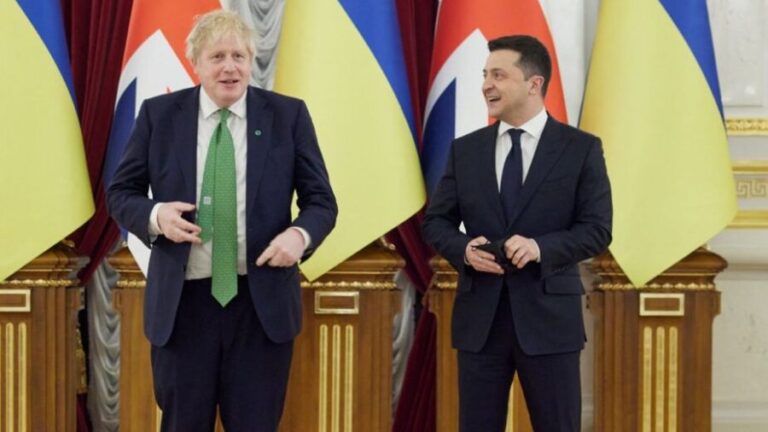A New Great Mediterranean Game
In the apparent absence of major strategic thinking in America and Europe about the future of the Mediterranean, the sea has become once again the stage of a Great geopolitical Game between big and small powers vying to gain hold of the triple gates of Europe, Africa and Asia.
Presently USA and China, the two major economic and political powers, are focusing on Asia, but the upshots of their rivalry are present in Europe. Russia is recasting its shadow on the Mediterranean as it did during the Cold War, only this time with a different strategic outlook: Turkey is not a staunch enemy but it is building a new multifaceted relationship with the old northern neighbor.
Perhaps somebody in Washington was thinking that by turning a blind eye on Russian stretching out in the Mediterranean Moscow could help box in China, but actually this is not happening and a very new picture of the old sea is emerging. But first we have to take a look back.
The old rivalry between the Western and Eastern Empire
In A World Without Islam (2012), Graham Fuller explains quite convincingly that little might have changed in the clash between the eastern and western Mediterranean in the following centuries.
In fact, when Mehmet II conquered Constantinople in 1453, he proclaimed himself emperor of the Romans. Only the Westerners, who saw Mehmet as a threat to their world, refused to acknowledge the continuity of the Roman empire under the new Turkish masters. The Greek Orthodox Church, the true continuation of the Byzantine tradition and Greek culture, thought differently. They had decided to turn down the offer of help from Rome and cast their destiny with the Turks, who promised respect for their faith, rather than with the Latins, who had sacked the city some two centuries earlier with the excuse of saving it. Constantinople was then the capital of the Muslim Caliphate, head of all Islam, and of Orthodox Christianity – both for different reasons against Rome, capital of Catholic Christianity.
At the same time, Ivan III shook off the yoke of the Mongolians, took on the title of archduke of all the Russians, and also claimed succession to the Byzantine legacy. He married Sophia Palaiologina, niece of last emperor of Constantinople, Constantine XI, and made the double-headed eagle the symbol of his own kingdom and Russia’s coat of arms. His own Russian Orthodox faith claimed links and continuity with the Patriarchate in Byzantium.
True, Turks and Russians were rivals for centuries, contending for control and access to the Mediterranean. The Turks had basically total control of the Black Sea and Mediterranean Sea until after they were clearly defeated in the siege of Vienna in 1683. In the following decades, Russia moved to push back the Turks from the Sea of Azov, and basically a century later they defeated the Crimean Khanate and established themselves on the north shores of the Black Sea.
Yet it was only early in the 19th century in alliance with the English against Napoleon that the Russian fleet moved into the Mediterranean proper and began to strike an alliance with the Kingdom of Naples, in southern Italy, first against the French then against the English. Russians were expelled from southern Italy only with Garibaldi’s 1860 expedition to the south, backed by the English.
In Fuller’s terms, Turks and Russians were rivals for the Byzantine legacy, yet both had claims on the western Mediterranean, almost following 6th-century emperor Justinian, who tried to reunify the Roman empire across the Mediterranean from the east.
The present slow but steady encroachment of Russians and Turks in Libya seems to follow the ancient pattern, in a rare historical moment in which Russians and Turks are getting along better with one another and both wary of other threats.
This is in fact also a major redefinition of the modern Turkish state harking back to its Ottoman roots. Modern Turks defined themselves out of the rubble of World War I against religions. Christians, Greeks and Armenians, old subjects of the Empire, were faulted with being the fifth column of fellow Russian Orthodox the Russians, and Islam was blamed for the country backwardness. Then strongman Kemal Ataturk strived to forge a new Turkish national identity, similar to that of other European nation states, without the Muslim Arabs (who had gained independence) or the Christian Greeks and Armenians (who were expelled or annihilated).
Still after the fall of the USSR and the emergence of new Turkic states in Central Asia and the slow resurface of Muslim religious integralism, following the anti Soviet war in Afghanistan, Turkey reached out to catch those straws – a pan Turkic claim and a new prerogative to the legacy of the old Caliphate. These trends were present before actual present Recep Tayyip Erdogan and were putting Turkey in a search of dimension of its own, out of the simple anti Soviet mold of the first Cold War.
The Present
The eastern Mediterranean has become the center of a very complex game between three main parties, with the two largest economies and powers, USA and China, watching over it. The three parties are Russia, Turkey, and a tripartite alliance of Israel, Egypt, and Saudi Arabia.
The three diverging and mixed agendas are difficult to clearly tell apart, and therefore hamper any large-scale open conflict between them. However, the undercurrent of friction between the three parties clearly opens the way to many smaller clashes in the region.
The main player in this new dimension of course is Russia. Russia managed in a few years to extend its reach basically to southern Italy, by sending volunteers to Libya and allegedly having strong links with a major Italian political party, the Lega. Russia was marginalized from the Black Sea, the eastern extension of the Mediterranean, after the disintegration of the Soviet Union in the early 1990s.
But thanks to the 2014 annexation of Crimea, it reconquered de facto the Black Sea. Moreover, Russia intervened to buttress the rule of Assad in Syria and therefore bolstered its hold on the strategic port of Tarsus on eastern shore of the Mediterranean. From there, Moscow propped up Russia’s influence in southern Cyprus and reached out to Greece, its traditional ally in the historic wars against Turkey.
Its latest move was to send volunteers into Libya (for decades under a strong Italian and influence) last year to help the local warlord Khalifa Haftar (originally supported by Egypt) climb to power and unify the country under his rule. Russia has therefore established a chain of strong points along the Mediterranean that boxes in Turkey and Egypt, which now have the options to openly challenge Russia or to come to some kind of agreement with it. Egypt is also hooked to Moscow through plans for a massive 7 billion US dollar investment in a Russian industrial zone on the Suez Canal, set to launch in late 2020.
With its regional ambitions, Turkey fears Syria could break down its national unity by unleashing the Turkish Kurd problem. Kurds, an Indo-European population, make up some 20% of Turkish population and their brethren in Syria and Iraq have gained a de facto independence that prompts quests for greater autonomy or independence in Turkey proper.
Therefore, neo-nationalistic leader Erdogan in Ankara felt obliged to crack down on Kurds in Syria and extend his help and support to Qatar against Saudi Arabia. The move in Qatar was aimed at stemming Saudi Arabia, close to Israel and Egypt. Moreover, Turkey had moved first against Bashar al Assad in Syria to contain rivals Russia and Iran, who were supporting Assad. More recently, in past months, Ankara moved also to support Haftar in Libya in order not to leave him alone in the hands of Russia and his old backers in Egypt.
The third element is the alliance – half-hidden, but growing stronger by the day – between Israel, Egypt, and Saudi Arabia. They have a common cause, which is not falling under the thumb of the Turks or of Iran, with its own regional ambitions. Moreover, leaders in Egypt and Saudi Arabia are growing distrustful of their own security forces and Israel can provide a double check on the safety of the local leaders.
This cements a bond between the three countries, which are becoming powerhouses of their own despite internal problems mainly in Egypt and Saudi Arabia, where large parts of the populations are disenfranchised and feel left out of the wealth and the decision making. Also, Israel, although historically supported by the United States, has growing good ties with Russia, as Russian Jews, with good ties with Moscow, now make up the single largest group in the country.
It is all very confusing, and in this chaos one would be better off keeping one’s nose out of it. But there is also another more dramatic angle in this picture.
Europe, USA – and China
In all of this, there are three more elements. The European countries, either as the EU or individually, are growing weak and disorganized, both in the eastern Mediterranean and in Libya. In the past few years, after the Americans pulled out of the country in 2012 because an attack to their consulate in Benghazi, Italy and France had also been competing in Libya for oil and control of sub-Saharan Africa.
Libya is in fact doubly important for Europe: it is a huge source of crude oil, thus energy, and it is at the floodgates of migration for one billion Africans dreaming of moving to Europe.
It should be of paramount importance therefore for Europe and NATO to have a common goal and in general to take control of the situation in Libya to avoid a chokehold over its energy and its sensitive migration policies. Whatever balance of power will be found in Libya this will influence all its neighbors, helping their stabilization or destabilization.
For the U.S., the situation is equally sensitive because it risks both losing a crucial ally (Turkey, NATO member) and letting a risky rival (Russia) advance into unprecedented territories.
The other risky element for United States is that through all of this it finds China back also on its western front. Russia’s war in Syria, its efforts in Libya, and its plans for expansion of the Suez Canal are de facto also financed by China’s purchase of Russian weapons and oil. Only last month, China opened up a $58 billion pipeline pumping gas from eastern Siberia up to Shanghai, for a total value of over $400 billion dollars, well over market prices. China, fearing American and rivalry and its hold on sea-lanes, wanted to make sure it had an alternative source of energy from Russia, whatever the price.
From all of this, it is clear that the United States cannot ignore the Mediterranean for the South China Sea. The two challenges are linked strategically, and Russia clearly sees it. The Belt and Road Initiative (BRI) from China is just the icing on the cake, promising to go around global sea-lanes, in American hands, the to carry Chinese and European goods via land routes running through Russia or Turkey.
This brings back the centrality of the Italian peninsula, placed at the center of the Mediterranean. Italy is politically weak as never since the end of World War II. The two elements that gave it directions, almost in holy communion, the presence of the Vatican and the Americans, have faded away. The Vatican is concentrated on a global outreach, and apparently doesn’t want to be bogged down by the Italian bickering. The USA was focusing on China also thinking that the world could be conveniently divided in separated regions. Therefore, China belonged to Asia and didn’t have a global influence stretching to the Mediterranean and Africa.
But Catholicism is part of the Italian identity, as even non catholic in Italy have a special attention to the Church and so is America home of some 30 million Italian Americans, half of the present Italian population. The U.S. historical and sentimental clout in especially strong in southern Italy. For instance, there are more Sicilians and Calabrians in America than in Italy. But Italian politics in the past couple of decades apparently proves that without Vatican or US clear strategic directions, Italy is rudderless and easy prey of its many demons. This becomes especially sensitive for everybody in the middle of this complicated new Great Mediterranean Game and with a Second Cold War casting its shadow all over the planet.
By Francesco Sisci
Source: Settimana News







